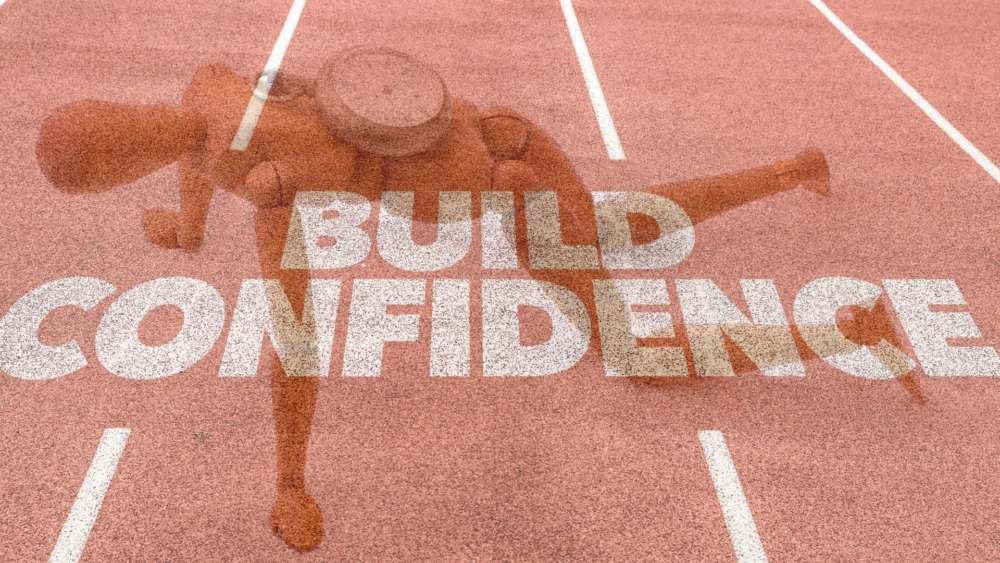Five Tips to Build Confidence and Capability in Times of Stress
Published by linker 5
Posted on July 14, 2020
5 min readLast updated: January 21, 2026

Published by linker 5
Posted on July 14, 2020
5 min readLast updated: January 21, 2026

By Karlin Sloan is the CEO of Sloan Group International and author of new book Inspiring Leadership for Uncertain Times,
Across the ancient world from Japanese Samurai to Confucius to Ancient Egyptians, Romans, Greeks and throughout the religions of the world, concepts of VIRTUE or character strengths have been viewed as foundational to a positive society. People who are virtuous promote individual and collective greatness, and those virtues can help us to transcend difficulty and bring out the best in ourselves.
What is the key to building confidence and capability in times of stress? It’s time to get back to basics. Cultivate your character through focusing on a timeless set of virtues. The definitions that follow come from work compiled by The Virtues Project[1], a global grassroots initiative to inspire the practice of virtues in everyday life. Take a moment to reflect on each of these ancient virtues and think about how you can practice them to navigate the stresses of your very modern workplace.
“Fortitude is strength of character. It is the will to endure no matter what happens with courage, confidence, and patience. We cultivate it by strengthening our resolve to face what comes.” Plato was one to view fortitude as one of the key virtues. Fortitude is important because it gives us the strength to keep calm and carry on no matter what the circumstance. If you face your work with fortitude, it becomes less about the immediate problem at hand, and more about the journey forward. It means you are committed to keep moving. As Marcus Aurelius, the great Roman Emperor says “do your job without whining[2].”
“Honesty is being truthful, sincere, open and genuine. We see ourselves and others with unclouded eyes. We refuse to lie, cheat, or take what is not ours. We strive to keep our promises.” Truthfulness and honesty are virtues we teach children from an early age. When we are honest, we are trustworthy and build better relationships. We feel more confident in ourselves because we know there is nothing to cover up or be ashamed of. Honesty does not mean a lack of tact, it means striving for accuracy and truth. Honesty cultivates trust at work.
“Self-discipline is having the self-control to do only what we truly choose to do, rather than being blown about in the winds of our desires. Self-discipline gives us the will to persevere. It keeps us from saying or doing things we regret.” The aforementioned Marcus Aurelius, the famous Roman Emperor and Stoic philosopher, reaches out across time to us from a plague-ridden ancient Rome. Marcus wrote about self-discipline and the fact that we do not control external circumstances, but we can control our thoughts and actions. He believed we are motivated by a sense of purpose and we are driven by purposeful goals. It takes self-discipline to get us there. ‘’I have to go to work — as a human being. What do I have to complain of, if I’m going to do what I was born for- the things I was brought into the world to do? [3]
“Dignity is a sense of worthiness and respect. When we are mindful of our own dignity, we hold ourselves with self-esteem, respect, and simple confidence. We avoid actions that cause us to feel ashamed. We recognize the inherent worth of each person, whether or not they see it for themselves.” Human dignity is a core element of traditional Chinese Confucianism, that affirms that all life is valuable, and we should be benevolent, to bestow dignity to all people. When you show up at work with a sense of dignity, grace, and carrying yourself with that sense of reverence, it is a virtue that deeply influences others around you to feel better about themselves[4].
“Kindness is a caring that springs from compassion. We have genuine concern for the welfare of others. We are warm, friendly, and ready to help. We listen for the needs beneath the words. We give tender attention in simple ways that bring others happiness. When we fill our own cup, our kindness naturally overflows to others.” Kindness is embedded in the ancient virtue of Compassion – defined as a “sensitivity to suffering in self and others with a commitment to try to alleviate and prevent it[5].” How are you being kind to yourself right now? What are the barriers to being kind to others at work?
Recent research into behavioral economics shows us that those who read or reflect on a code of ethics before taking action tend toward more ethical behaviors aligned with that code[6]. When we strive for our own best action we are more likely to become more confident, capable, and creative in the face of change. Take the time to discuss virtues with your work team, and you’ll be surprised to see people rise to the occasion.
2 https://medium.com/@sintija.bernava/the-wisdom-of-stoicism-on-how-to-build-self-discipline-3cc751b1683c
[3] https://medium.com/@sintija.bernava/the-wisdom-of-stoicism-on-how-to-build-self-discipline-3cc751b1683c
[4]https://www.cambridge.org/core/books/cambridge-handbook-of-human-dignity/human-dignity-in-traditional-chinese-confucianism/8A7A1FE97F7A658C99990006F02DA6E4
[5] https://self-compassion.org/wp-content/uploads/2019/09/McGehee2017.pdf
[6] https://digitalcommons.ursinus.edu/cgi/viewcontent.cgi?article=1013&context=bus_econ_fac
Explore more articles in the Top Stories category











